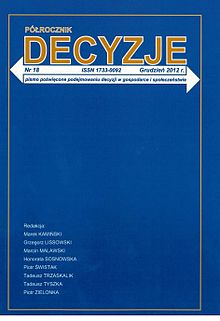Relational goods and overcoming barriers to collective action
Relational goods and overcoming barriers to collective action
Author(s): Carole Jean UhlanerSubject(s): Social Sciences, Economy
Published by: Akademia Leona Koźmińskiego
Keywords: relational goods; collective action; political participation; social identity
Summary/Abstract: Relational goods contribute to understanding why people engage in collective action, notably including political participation, even though, as Olson showed, it would often be more rational for them to free-ride on the activity of others. Relational goods are neither public goods nor private goods but a third type of good. They must be jointly consumed with another person or persons (unlike private goods), but the identity of the other persons matters crucially (unlike the case for public goods). Relational goods can only exist by mutual agreement as part of a relationship with non-arbitrary others, in the context of an interaction. Friendship is a prototypical example. Relational goods can exist along a range of personal contact from direct, where individuals interact face to face, to indirect, where the interaction may be at a distance with a certain type of person. In the indirect case the relational good may frequently take the form of reinforcing a desired social identity. The distinction between “consumption” and “instrumental” goods applies, parallel with other usage. The consumption relational goods are produced independent of any consequences of the action or relationship, while the instrumental ones refl ect consequences, such as from an action that enhances the value of an identity. People who value relational goods may act collectively even if other net benefi ts of action are negative. Larger groups become more, not less, prone to collective activity. Relational goods provide a missing element to understand how the process of mobilization works at the individual level; leaders can infl uence people’s perceptions of what others are doing, of the value of a shared identity, and of the likelihood of success. Some limited empirical evidence is consistent with relational goods playing a role in enhancing collective action.
Journal: Decyzje
- Issue Year: 2015
- Issue No: 24
- Page Range: 171-190
- Page Count: 20
- Language: English

